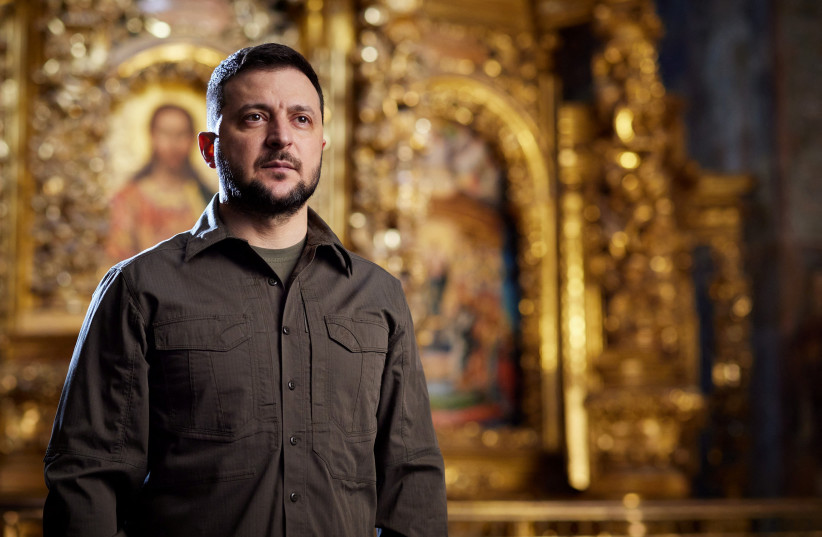Lithuania has urged the European Union to sanction Patriarch Kirill, head of the Russian Orthodox Church, due to Russia's ongoing invasion of Ukraine, Lithuanian Foreign Minister Gabrielius Landsbergis told Lithuanian news outlet 15 Minutes.
Kirill, a noted ally of Russian President Vladimir Putin, has been vocal in his support for what Moscow has termed a "special military operation" in Ukraine. While he has expressed his hopes that it end quickly, he has also never once condemned it.
He has also referred to Ukrainians defending against Russian forces as "forces of evil" who are preventing "Russian unity."
"That person, in my view, is not engaged in pastoral care but in the destruction of souls," Landsbergis told 15 Minutes.

The invasion of Ukraine and the Orthodox Church
The ongoing Russian invasion of Ukraine has a religious element in its background as it reflects the ongoing religious conflict between the two countries' Orthodox churches.
Until 2018, the Ukrainian Orthodox Church was officially part of the Russian Orthodox Church. Indeed, as noted by many surveys, a large majority of Ukrainians are Orthodox Christians.
However, the relationship between Ukraine's and Russia's Orthodox churches changed in 2019 when Bartholomew I of Constantinople, the current ecumenical patriarch and essentially the head of the Orthodox Church, recognized the independence of the Ukraine Orthodox Church.
This does not mean the church is entirely independent and unconnected to Orthodoxy, as that is not how the church works. Rather, it would essentially be equal to the many other Orthodox churches.
The Orthodox Church functions as what is essentially a group of churches where the archbishops do not technically report to anyone higher – a type of church known as autocephaly. The ecumenical patriarch is considered "primus inter pares," meaning "first among equals," but he has no real authority over the other churches.
But the problem lies in how the Russian Orthodox Church claims authority over Ukraine as a whole, and as such, they have been greatly opposed to the establishment and subsequent recognition of Ukraine's Orthodox Church.
Putin himself had condemned the creation of the Ukrainian Orthodox Church, calling it a bid to "to legalize the schismatic communities that exist[ed] in Ukraine under the jurisdiction of Istanbul, which is a gross violation of Orthodox canons" in an interview with Serbian media.
Lithuania's Orthodox Church
It wasn't just the Ukrainian Orthodox Church that belonged to the Russian Orthodox Church. Lithuania, too, is home to an Orthodox Church that belongs to the Moscow Patriarchate.
Already, the head of the church in Lithuania has condemned the invasion, but now secessionist sentiments have also begun stirring among some Orthodox Christians in the country.
So could Lithuania's Orthodox Church throw off the yoke of the Moscow Patriarchate and become independent as well?
As Landsbergis told 15 Minutes, it would be welcome, but it is a matter of self-determination and the government wouldn't interfere in recognition of the separation between Church and State.
